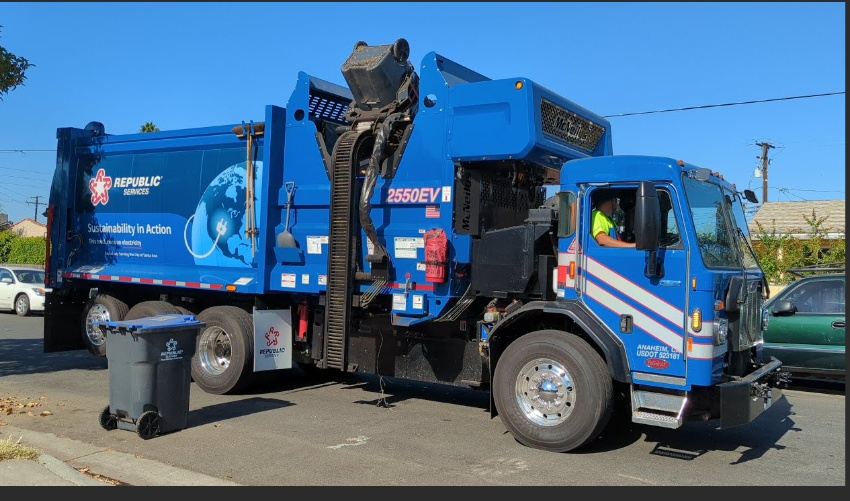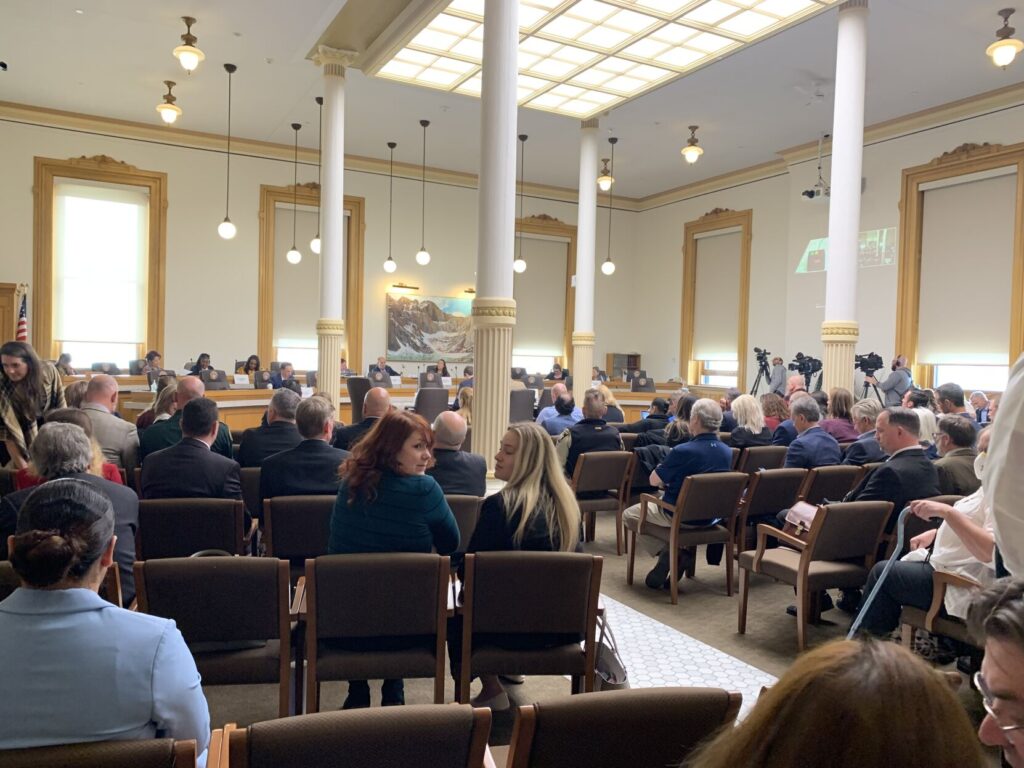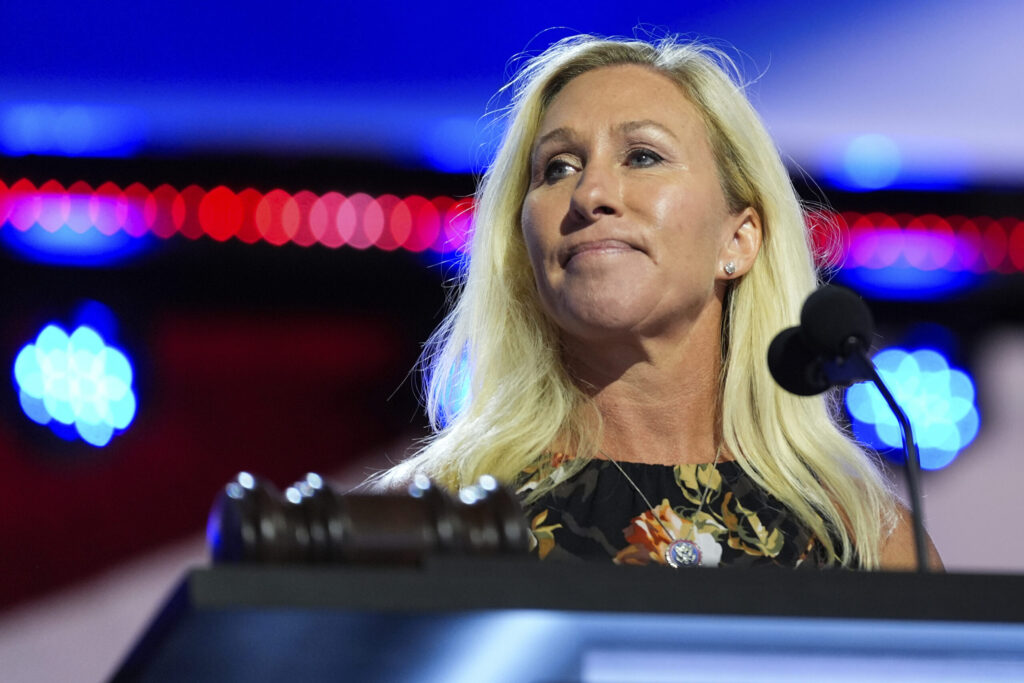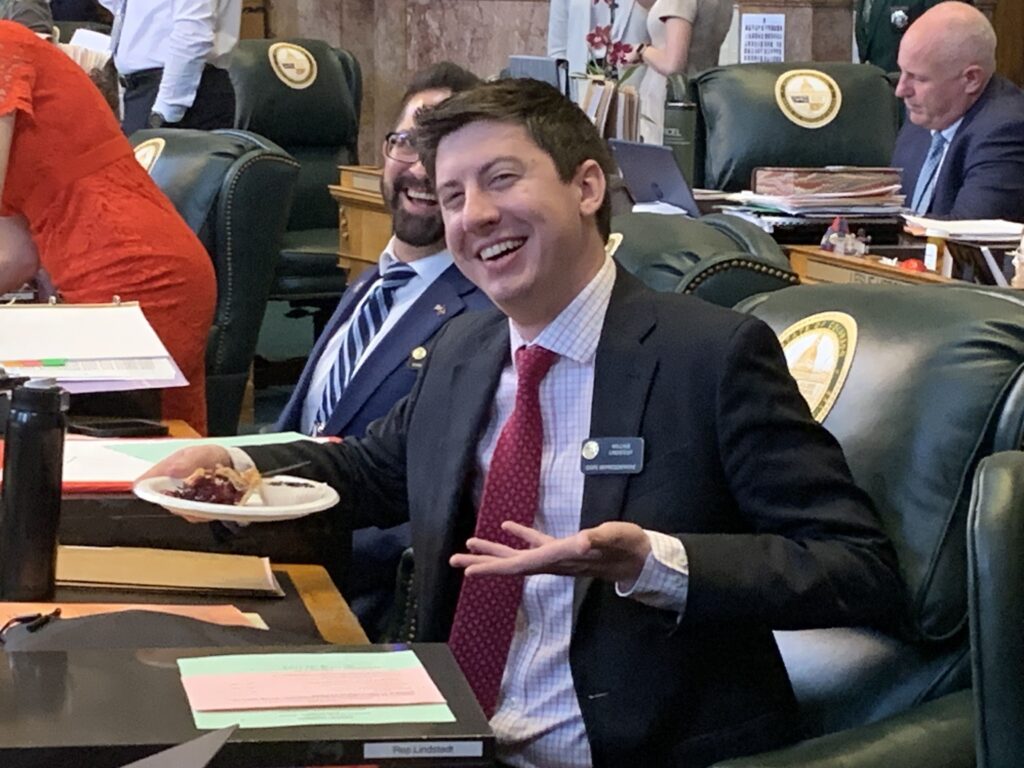Election security bill to address ‘insider threats’ arising from Mesa County

Secretary of State Jena Griswold, along with the Colorado County Clerks Association and Democratic lawmakers, is pushing legislation that seeks to clamp down on the kind of alleged election security breach supporters say led to the grand jury indictment last week of Mesa County Clerk and Recorder Tina Peters.
Senate Bill 153, dubbed the Colorado Election Security Act, seeks to increase basic security measures, such as requiring 24/7 surveillance and key card access to rooms where election equipment is stored. In any county of more than 100,000, the bill would prohibit any elected official or candidate from having key card access to a room with voting equipment or devices without being accompanied by someone else with authorized access. For smaller counties, the bill sets up a $500,000 grant to pay for the round-the-clock surveillance or key card access.
Introduced last Friday by Senate President Steve Fenberg, D-Boulder and Rep. Susan Lontine, D-Denver, the bill is scheduled for its first hearing on Tuesday in the Senate, State, Veterans and Military Affairs Committee.
“As misinformation and conspiracy theories seep into elections, we must take action,” Fenberg said during a Monday news conference, adding, “We have seen how fragmented democratic institutions (have become).”
SB 153 would also require in-depth training for election workers and officials.
CCCA Executive Director Matt Crane pointed out that the clerks association seeks more teeth in this area, given that Griswold has said Peters never took election training mandated under current state law. Under the bill, any election worker required to take the training now must do so within six months, and workers or elected officials refuse would be barred from running elections in that county, Crane said.
Another provision would bar a designated election official from “knowingly or recklessly” spreading “misinformation” or “disinformation” regarding election administration. The bill does not define misinformation or disinformation – or specifies who gets to determine if a claim is false.
SB 153 will bolster “safeguards from those who seek to do harm within,” Griswold said, such as by prohibiting the unauthorized copying of election software or knowingly publishing passwords online, as Peters and others tied to the Mesa County case are alleged to have done.
Gilbert “Bo” Ortiz, the CCCA president and clerk and recorder for Pueblo County, said that what happened in Mesa County was a breach of public trust, in which a “low information official was targeted by grifters and bad actors.”
Peters, who is hoping to win the primary nomination and challenge Griswold, has denied wrongdoing and instead maintains that she has only been trying to unearth evidence of election fraud.
Penalizing an election administrator or elected official for spreading misinformation could raise First Amendment concerns, but Fenberg said there is already a similar law that bars the spreading of such misinformation. That law, Colorado Revised Statutes 1-13-109, says no one can make any false statement designed to affect the vote on any issue submitted to the electors at any election or relating to any candidate for election to public office. It’s unknown whether anyone has ever been charged with violating that statute, which is a class 2 misdemeanor with penalties of up to 364 days in jail, a fine of between $250 and $1,000, or both.
“You can’t lie about our elections,” Fenberg said. As to who would be the arbiter of which is fact and which is a false statement, Fenberg said that would be left to the courts to decide.
Griswold said her office was not thinking of “insider threats” before the case in Mesa County. She was responding to a question on whether the bill is a direct response to allegations in that county.
“Mesa County woke us up to potential vulnerabilities,” Fenberg said.
The grand jury a few days ago indicted Peters on felony and misdemeanor charges, including attempting to influence a public servant, criminal impersonation, conspiracy to commit criminal impersonation, identity theft, official misconduct, violation of duty and failing to comply with the secretary of state.
In a statement issued by her campaign in response to the indictment, Peters blasted Griswold, the Democrat she hopes to unseat in the fall, and Mesa County District Attorney Dan Rubinstein, a Republican she derided as a “self-described never-Trumper,” saying the two “have been united in their opposition to conservative activists within the Republican Party who continue to demand more transparency in Colorado’s elections process.”
Said Peters: “Using legal muscle to indict political opponents during an election isn’t new strategy, but it’s easier to execute when you have a district attorney who despises President Trump and any constitutional conservative like myself who continues to demand all election evidence be made available to the public.”

marianne.goodland@coloradopolitics.com













